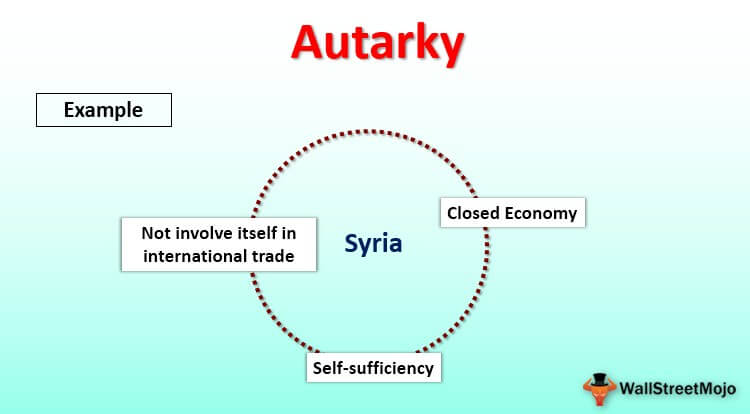Introduction
Autarky, derived from the Greek word “autarkeia,” meaning self-sufficiency or independence, is a concept that has been central to economic and political discussions for centuries. It refers to a state or condition where a nation, region, or individual is able to sustain itself without relying on external sources or support. This article provides an in-depth exploration of autarky, covering its definition, historical context, advantages, disadvantages, and real-world examples. By understanding the concept of autarky, we can better appreciate its implications and relevance in contemporary economic and political landscapes.
Definition of Autarky
Autarky is the condition of self-sufficiency where a country or entity is capable of producing all the goods and services it needs internally, without engaging in trade with other countries or entities. In economic terms, an autarkic economy is one that does not participate in international trade, relying solely on its own resources and production capabilities.
Historical Context
- Ancient Autarky: The concept of autarky dates back to ancient times. Various ancient civilizations, including those in Greece and Rome, sought self-sufficiency to maintain independence and stability. In these societies, autarky was often associated with the idea of ensuring security and self-reliance in the face of potential threats.
- Mercantilism, an economic theory prevalent from the 16th to the 18th centuries, emphasized the importance of self-sufficiency and a positive balance of trade. Governments pursued policies that aimed to reduce dependence on foreign goods and enhance domestic production.
- In recent decades, the concept of autarky has evolved with the rise of globalization, leading to debates about the balance between self-sufficiency and international trade.
Advantages of Autarky
- Economic Stability: Autarky can provide a country with greater economic stability by reducing its dependence on volatile international markets. By relying on domestic production, an autarkic economy is less vulnerable to fluctuations in global commodity prices or trade disruptions.
- National Security: Self-sufficiency can enhance national security by reducing reliance on foreign countries for essential goods and resources. This can be particularly important during times of conflict or geopolitical tension, where access to critical supplies may be compromised.
- Encouragement of Domestic Industries: By focusing on self-sufficiency, a country can promote the growth of domestic industries and reduce unemployment. This can lead to increased investment in local businesses and infrastructure, contributing to long-term economic development.
Disadvantages of Autarky
- Inefficiency: One of the major drawbacks of autarky is the potential for economic inefficiency. By avoiding international trade, an autarkic economy may miss out on the benefits of comparative advantage, where countries specialize in producing goods they are relatively more efficient at and trade for those they are less efficient at.
- Limited Access to Resources: Autarky can restrict access to resources that are not available domestically. This can lead to shortages of essential goods and hinder technological advancement if a country cannot import advanced technologies or raw materials.
- Higher Costs: Producing all goods domestically can result in higher costs for both producers and consumers. Without the benefits of economies of scale and competition from international markets, domestic industries may face higher production costs, which can be passed on to consumers in the form of higher prices.
- Isolation: Pursuing autarky can lead to economic and political isolation.
Real-World Examples of Autarky
- The regime aimed to achieve economic self-sufficiency by expanding domestic production and reducing reliance on foreign imports. This policy had significant implications for the global economy and contributed to the outbreak of World War II.
- The Soviet Union invested heavily in domestic industries and agriculture to achieve self-sufficiency, with varying degrees of success.
- North Korea: North Korea has pursued autarky as a core element of its economic and political strategy. The country’s focus on self-sufficiency has led to a highly controlled economy with limited engagement in international trade.
The Future of Autarky
The concept of autarky continues to be relevant in contemporary discussions about economic policy and international relations. The challenge lies in finding a balance between the benefits of global trade and the desire for self-reliance.
Conclusion
Autarky is a multifaceted concept that encompasses the pursuit of self-sufficiency and independence in economic and political contexts.

Leave a Reply